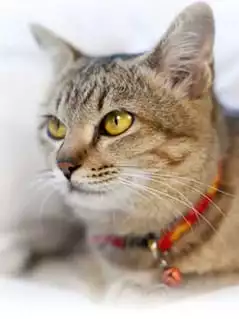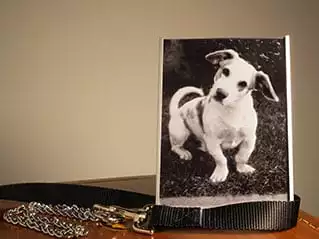Cat and Dog Euthanasia & Grief Support in Valparaiso, IN
Euthanasia
Making a decision to euthanize is often harder than dealing with the loss itself. Many people say they can accept the death and accompanying sadness, but have great difficulty with being the one who must decide when death occurs.
The following are commonly asked questions about cat and dog euthanasia in Valparaiso, IN:
How will I know when?
If your pet can no longer experience the things it once enjoyed, cannot respond to you in its usual ways, or appears to be experiencing more pain than pleasure, you may need to consider euthanasia. When a pet is suffering or has a severely diminished quality of life and you decide to euthanize, you are doing what you believe is best for your animal friend. Let that thought remain uppermost in your mind as you face your decision.

Will it be painless?
Humane euthanasia is most often accomplished for pets by a painless injection. Following the injection of the euthanasia drug, your pet will immediately become deeply and irreversibly unconscious, as if falling asleep. It will be quick and painless.
How do I tell my family?
You should review with them the information you have received from your veterinarian. Encourage family members to express their thoughts and feelings.

Should I be present?
Some people realize that witnessing the procedure would be too distressing and decide not to be there. Others take comfort in seeing death come gently and quickly, especially if the animal is suffering. If you choose not to be present, don’t feel guilty. Veterinarians and their staffs are dedicated to seeing that the final moments of an animal’s life are as peaceful and painless as possible. The last thing your pet will know is the sound of a kindly voice and the touch of a caring, competent hand.
How can I say good-bye?
The act of saying good-bye is an important step in managing the natural and healthy feelings of grief, sorrow, and loss. Once the euthanasia decision has been made, you and other family members may want to say good-bye to your pet. A last evening with your pet at home or a visit to the pet at the hospital may be appropriate. Family members who want to be alone with the pet should be allowed to do so.
Dog and Cat Grief Support
Support groups for grief
The following are support groups that can help you and your family cope with the lose of a beloved pet:
ASPCA
National pet loss hotline
(212) 876-7700
AVMA
American Veterinary Medical Association
C.A.R.E.
(Helpline for companion animal related emotions)
(217)244-2273
Chicago VMA
(630) 603-3994
Michigan State University
Grief counseling provided by veterinary student volunteers
(517) 353-5064
Ohio State University
Pet loss hotline
(614) 292-1823
Guidelines for helping children with grief
- Explain your pet’s condition is nobody’s fault. Children may think that they are responsible because they failed to walk, play with the dog, or feed the cat or fill it’s water bowl.
- Be forthright about your own feelings; this encourages children to be open and honest as well.
- Never try to protect children by making up stories. If they later learn the truth, they may lose trust in your explanations.
- Explain that euthanasia is a quick, gentle, and painless death.
- Do not refer to euthanasia as “putting an animal to sleep”. Children may fear that if they fall asleep, they too might die.
- Give children the opportunity to say goodbye.

I have been a client of McAfee Animal Hospital for many, many years. That alone testifies to my faith in the doctors, and staff. I am very satisfied, and my recent visit with Dr. Danielle was very informative, reassuring, and professional. I felt very confident in her care of my Griffie, Wicket.
-Ann L.


 VISIT OUR
VISIT OUR SHOP OUR
SHOP OUR VIEW OUR
VIEW OUR